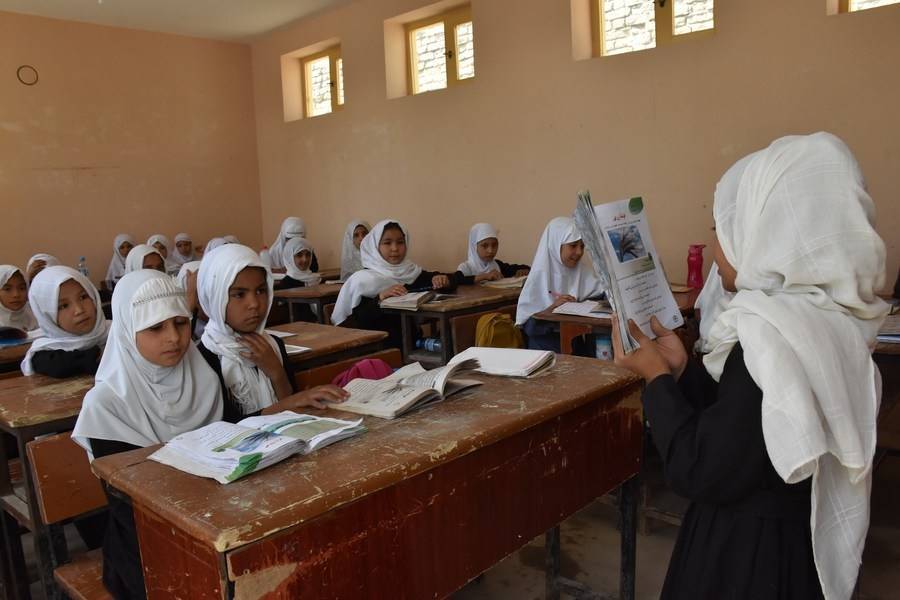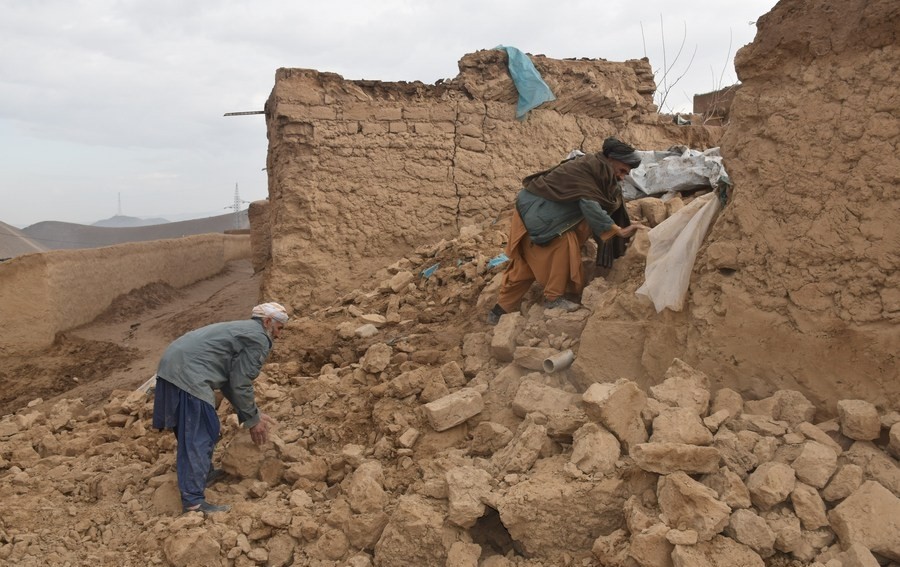Humanitarian activities in this province are ongoing, according to the UN’s Humanitarian Assistance Coordination Office, but immediate action is required….reports Asian Lite News
The United Nations Coordination Office for Humanitarian Assistance has announced that 24,800 Herati families impacted by the earthquake are residing in makeshift shelters like tents, reported Khaama Press.
In a statement posted on its social media site X, the UN-affiliated organisation stressed that the families residing in Herat, and who are severely impacted by the disaster should not be forgotten, and must be helped with basic amenities.
Citing the UN office’s records, Khaama Press reported that the earthquakes in Herat impacted 2,75,000 people and destroyed 40,000 houses.
Humanitarian activities in this province are ongoing, according to the UN’s Humanitarian Assistance Coordination Office, but immediate action is required.
In the consecutive earthquakes in Herat, hundreds of people, especially children and women, have lost their lives.
Earthquake survivors in this province are still in need of assistance six months after the deadly earthquakes that rattled the Afghan province, but because of the Taliban’s control, international nations are reluctant to actively support those in need, reported Khaama Press.
The Red Cross Committee had earlier stressed the critical need for secure and warm accommodation for earthquake victims in Herat.
However, some Herat locals claim that the Taliban and UN agencies have not sufficiently reported on the aid that other nations and international organisations have given to the earthquake victims in Herat.

280 schools damaged
Recent seismic activity in Herat has left a devastating mark on the province’s education infrastructure, with over 280 schools reported damaged by the earthquakes that struck in recent months, TOLO News reported.
The Herat Education Department confirms that many of these educational facilities are now rendered unusable, highlighting the urgent need for reconstruction efforts.
Rahmatullah Jabir, head of the Herat Education Department, provided insight into the ongoing challenges, stating that international organisations and the government have already stepped in to rebuild more than eighty schools in earthquake-affected villages. However, the task ahead remains daunting as approximately 400 schools require repair, with a staggering 286 schools forced to close their doors due to the seismic aftermath, according to TOLO News.
The impact of the earthquakes has been acutely felt by students and teachers alike. Most classrooms suffered severe damage during the tremors, leading to the suspension of teaching activities amidst fears of structural collapse.
Marwa Nouri, a student, expressed the prevailing anxiety among her peers, stating, “When we go into the classroom, we are very afraid that something might fall on us, and our school is completely destroyed, so we are unable to study.”
Ayesha Qasemi echoed similar sentiments, emphasising the urgent need for school reconstruction: “Our school should be repaired so that we can continue our studies and our school is not broken.”
Teachers also underscored the adverse effects of the damaged infrastructure on the learning environment. Mohammad Ismail Firouz highlighted the importance of a conducive setting for effective education, noting, “If children are constantly worried that the classroom might collapse, proper education cannot take place.”
Moreover, Ahmad Farhad Rafahi pointed out the reluctance of parents to send their children to school amidst safety concerns, adding to the educational disruption caused by the earthquakes.
Despite these challenges, the Herat Education Department reports that over 1,400 schools are currently operational in the province. However, many of these institutions lack adequate buildings, leaving students exposed to harsh weather conditions as they continue their education under makeshift arrangements such as tents or open spaces, TOLO News reported. (ANI)

